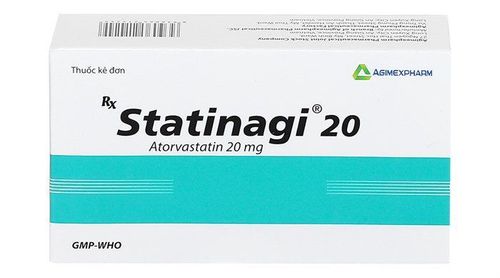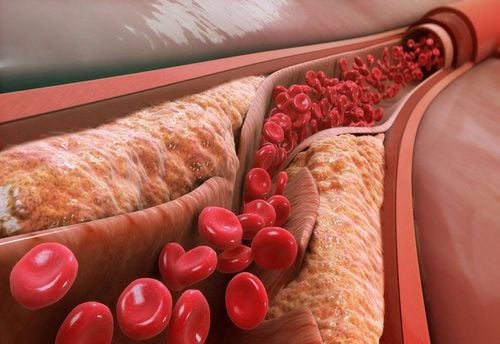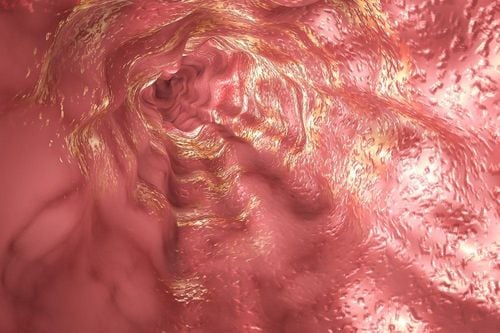This is an automatically translated article.
Cholesterol is a type of fat that is essential for the body, where it stores energy for the body's activities. However, cholesterol also has beneficial and harmful types to the body. Excess cholesterol will have many adverse effects on your health. So whether high cholesterol is inherited will be answered in the article below.
1. How does excess cholesterol affect health?
There are three types of cholesterol in the body: LDL-C, HDL-C, and VLDL-C. Each type will perform a different function for the transport and storage of substances.LDL-C (low density cholesterol) is a type of "bad" cholesterol, because it causes an increase in fat accumulation in the walls of blood vessels, long-term causing atherosclerosis. If the concentration of this type of cholesterol is too high, it will cause many diseases such as: Embolism, myocardial infarction, cerebral infarction, .... HDL-C (high density cholesterol) is a type of "good" cholesterol for the system. cardiovascular disease, because it will transport excess fat back to the liver, reducing the risk of atherosclerosis as well as increasing the strength of the vessel walls and limiting heart and blood vessel diseases. VLDL-C (very low density cholesterol) has the same effect as LDL-C and if it increases the concentration of this cholesterol in the blood, it will have an adverse effect on health. Excess cholesterol will increase the risk of cardiovascular diseases such as myocardial infarction, cerebral infarction, coronary artery disease and hypertension. Because when LDL-C is high in the blood, it will accumulate in the walls of blood vessels to form plaque, which is the cause of atherosclerosis. These plaques over time will grow larger and cause local embolism, the cause of angina attacks. Worse, when this plaque cracks and breaks, it will create blood clots, these clots follow the blood flow and cause filling of small vessels, especially dangerous, filling the blood vessels of the heart, lungs, brain, ... is the cause of infarction in these organs.
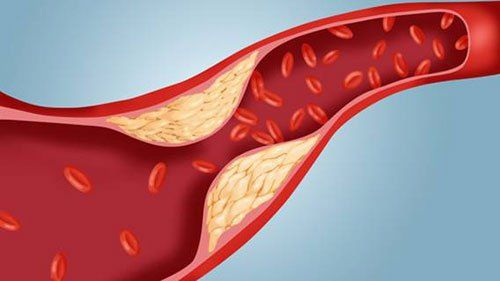
Cholesterol trong máu cao có thể gây ra một số bệnh tim mạch
2. Is high cholesterol genetic?
Cholesterol in the body comes from food and is synthesized by the body. Of which 75% of the body's cholesterol is synthesized by the liver and some organs. The rest comes from feed intake, most of which is food of animal origin.
The cause of high cholesterol is an imbalance between energy supplied and consumed, causing body fat accumulation, including: Eating too much, being inactive,...
Genetically high cholesterol are not? Studies show that cholesterol levels are still high for some people who lead a healthy lifestyle, eat right, and exercise. This partly suggests that the cause of elevated cholesterol is related to genetic factors. This condition is called hereditary hypercholesterolemia (FH), and in some families, most of their members have test results that show higher-than-normal levels of LDL-C.
This disease has a rate of 1/500, it increases blood cholesterol from 300 mg/dL up to 600 mg/dL and leads to many risks of cardiovascular diseases, diabetes, cerebral infarction, .. If serum cholesterol levels are too high, exceeding 1000 mg/dL (a very low rate, about 1/1 million people) can cause death at a very early age, usually before the age of 20 years.
According to many studies, patients with inherited high blood cholesterol have 2 defective genes (one from the father and one from the mother).
3. Symptoms of hypercholesterolemia
LDL-C gradually accumulates in the blood vessels causing atherosclerosis, thereby preventing blood circulation, even creating blood clots that cause blockages. If there is a blockage or a decrease in blood circulation, it will show anemia in the organs. For example: Brain ischemia causes headache, dizziness; limb ischemia causes pain and numbness in the ischemic limb.
If the cholesterol level in the body is high enough for clinical manifestations, it will also appear as yellow-red spots on the skin, usually the skin around the eyes, elbows, knees, ... called jaundice. This pathology is often seen in the elderly, people with diabetes and people with hereditary high cholesterol.
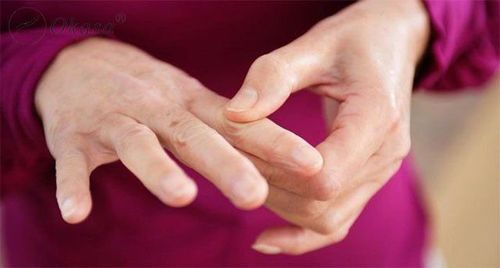
Cholesterol cao gây nghẽn mạch và thiếu máu chi bị thiếu máu
4. How to reduce blood cholesterol levels due to genetics
Inherited hypercholesterolemia is congenital, people with the disease can have dangerously high cholesterol from childhood or adolescence, have a high risk of coronary heart disease, myocardial infarction and infarction Brain. So what to do with high cholesterol? Monitor blood cholesterol levels from childhood to adulthood, you should go for regular health check-ups and actively monitor your own blood cholesterol levels, especially you should check if high cholesterol is inherited if you have parents. , siblings who had a heart attack before age 55 (for men) or 65 years of age (for women).
Hypercholesterolemia is a difficult disease to treat but can be controlled. Therefore, screening for inherited high cholesterol is the first step that clinicians need to pay attention to early detection and treatment of familial hypercholesterolemia. In addition, patients receive counseling and guidance from nutrition experts who have undergone intensive training in lipid disorder management. Key factors for managing familial hypercholesterolemia include lowering LDL cholesterol levels, managing cardiovascular disease risk factors, such as hypertension and smoking, and thereby improving compliance. Adherence and persistence with lifestyle modifications and drug therapy.
In addition, for relatives of patients with hypercholesterolemia, it is also necessary to screen for inherited high cholesterol risk to facilitate early detection and treatment.
Currently, Vinmec International General Hospital is providing health checkup packages to measure cholesterol in the blood to control excess fat for customers in the best way. All medical examination and examination procedures at the hospital are performed by a team of qualified doctors, combined with a system of modern machinery and equipment to serve the examination and treatment process well. .
Please dial HOTLINE for more information or register for an appointment HERE. Download MyVinmec app to make appointments faster and to manage your bookings easily.





